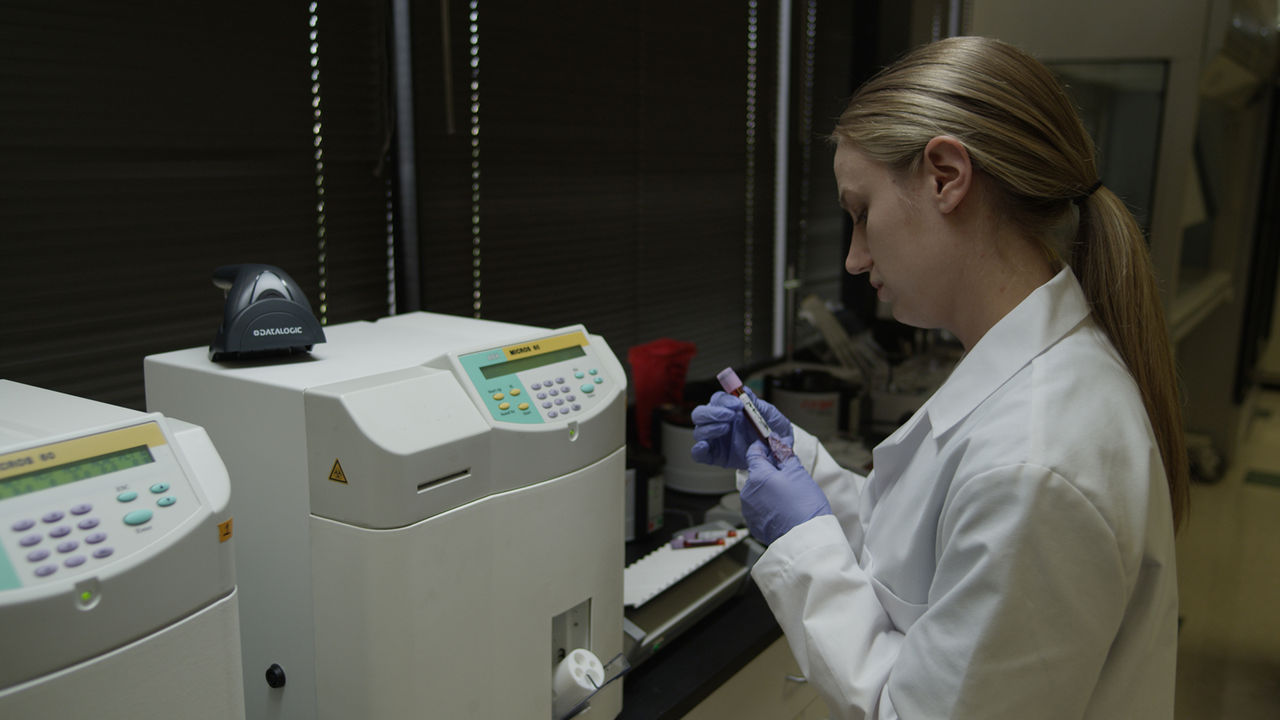Never before have so many people been aware of the job of a medical laboratory technician. The COVID-19 crisis has brought a spotlight to the increasing need for skilled individuals who can diagnose medical conditions using laboratory procedures.
The career outlook for medical laboratory technicians (MLT) is bright as multiple factors, including an aging population, drive and increased need for these skilled individuals. According to the Bureau of Labor Statistics, employment in this field is projected to grow more than 10 percent over the next decade, making it a very attractive career path for the right individual.
The Average Day for an MLT
If you have ever had a doctor order a medical test, such as one to check cholesterol or glucose levels, it was most likely completed by an MLT. This “behind the scenes” job consists of running the tests and procedures that have been requested by doctors to diagnose or rule out a condition or disease.
When MLTs arrive at work, they will have a variety of tasks to perform, depending on what is needed that day. Their responsibilities can also vary based on their specialty. Often, MLTs are tasked with analyzing body fluids, such as blood, urine or cell tissue to check for abnormal findings. To do so, they use sophisticated laboratory equipment, such as microscopes and cell counters. MLTs may also use automated or computerized equipment and instruments that can perform more than one test at the same time.
Once a test is complete, MLTs log the data and enter the results into a patient’s medical record and generate charts, graphs, or summaries. The MLT may also discuss the results of the laboratory tests and procedures with the physician(s) if they want immediate findings or have additional questions.
MLTs often work under tight deadlines—some of the tests they are analyzing are extremely time sensitive. They may work at a hospital, physician’s office, medical lab or university and are usually supervised by a pathologist, medical laboratory scientist or other medical professional. An MLT working in a small laboratory or healthcare facility may be asked to perform a large variety of tests, while one working in a large lab or hospital may choose to specialize in a specific area such as blood, pathology or bacteria. And, some MLTs find opportunities assisting medical researchers who are looking for ways to control or cure diseases.
The growth of urgent care or walk-in care facilities has resulted in job growth for medical lab technicians since many of these clinics do most of their diagnostic testing on site, requiring an MLT to be on staff at all times.
Being an MLT can be a rewarding career, and your work can be the important bridge between testing and treatment. If you are interested in learning more about our Medical Lab Technician program, click here or call to speak to one of our career counselors.
In response to COVID-19 and following recommendations from the Centers for Disease Control and local, state and federal authorities, Fortis has transitioned to online and remote delivery of classes for all students. Fortis admissions teams have also transitioned to remote interview and enrollment processes, so prospective students do not need to visit the campus at this time. More info can be found here: https://www.fortis.edu/online-transition.html. Call today to begin your education to become a medical laboratory technician!


